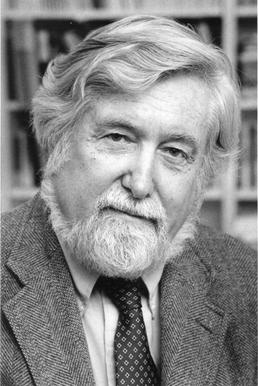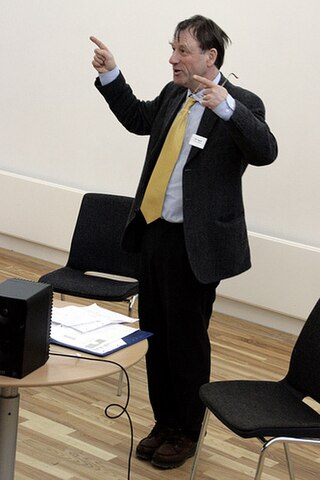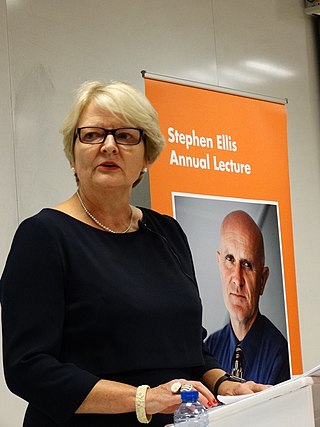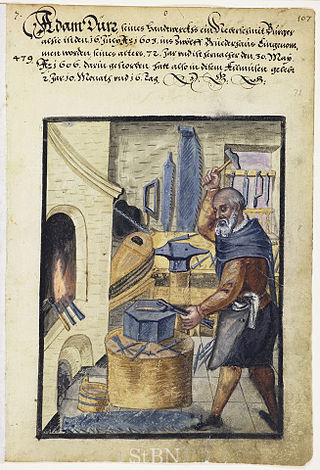
Anthropology is the scientific study of humanity, concerned with human behavior, human biology, cultures, societies, and linguistics, in both the present and past, including past human species. Social anthropology studies patterns of behavior, while cultural anthropology studies cultural meaning, including norms and values. A portmanteau term sociocultural anthropology is commonly used today. Linguistic anthropology studies how language influences social life. Biological or physical anthropology studies the biological development of humans.

Ethnography is a branch of anthropology and the systematic study of individual cultures. Ethnography explores cultural phenomena from the point of view of the subject of the study. Ethnography is also a type of social research that involves examining the behavior of the participants in a given social situation and understanding the group members' own interpretation of such behavior.
Economic anthropology is a field that attempts to explain human economic behavior in its widest historic, geographic and cultural scope. It is an amalgamation of economics and anthropology. It is practiced by anthropologists and has a complex relationship with the discipline of economics, of which it is highly critical. Its origins as a sub-field of anthropology began with work by the Polish founder of anthropology Bronislaw Malinowski and the French Marcel Mauss on the nature of reciprocity as an alternative to market exchange. For the most part, studies in economic anthropology focus on exchange.

Clifford James Geertz was an American anthropologist who is remembered mostly for his strong support for and influence on the practice of symbolic anthropology and who was considered "for three decades... the single most influential cultural anthropologist in the United States." He served until his death as professor emeritus at the Institute for Advanced Study, Princeton.
Chris Tilley is a British archaeologist known for his contributions to postprocessualist archaeological theory. He is currently a Professor of Anthropology and Archaeology at University College London.
Ethnoarchaeology is the ethnographic study of peoples for archaeological reasons, usually through the study of the material remains of a society. Ethnoarchaeology aids archaeologists in reconstructing ancient lifeways by studying the material and non-material traditions of modern societies. Ethnoarchaeology also aids in the understanding of the way an object was made and the purpose of what it is being used for. Archaeologists can then infer that ancient societies used the same techniques as their modern counterparts given a similar set of environmental circumstances.

Visual anthropology is a subfield of social anthropology that is concerned, in part, with the study and production of ethnographic photography, film and, since the mid-1990s, new media. More recently it has been used by historians of science and visual culture. Although sometimes wrongly conflated with ethnographic film, visual anthropology encompasses much more, including the anthropological study of all visual representations such as dance and other kinds of performance, museums and archiving, all visual arts, and the production and reception of mass media. Histories and analyses of representations from many cultures are part of visual anthropology: research topics include sandpaintings, tattoos, sculptures and reliefs, cave paintings, scrimshaw, jewelry, hieroglyphics, paintings and photographs. Also within the province of the subfield are studies of human vision, properties of media, the relationship of visual form and function, and applied, collaborative uses of visual representations.

Material culture is the aspect of social reality grounded in the objects and architecture that surround people. It includes the usage, consumption, creation, and trade of objects as well as the behaviors, norms, and rituals that the objects create or take part in. Some scholars also include other intangible phenomena that include sound, smell and events, while some even consider language and media as part of it. The term is most commonly used in archaeological and anthropological studies, to define material or artifacts as they are understood in relation to specific cultural and historic contexts, communities, and belief systems. Material culture can be described as any object that humans use to survive, define social relationships, represent facets of identity, or benefit peoples' state of mind, social, or economic standing. Material culture is contrasting to symbolic culture, which includes nonmaterial symbols, beliefs, and social constructs.
Digital anthropology is the anthropological study of the relationship between humans and digital-era technology. The field is new, and thus has a variety of names with a variety of emphases. These include techno-anthropology, digital ethnography, cyberanthropology, and virtual anthropology.
Online ethnography is an online research method that adapts ethnographic methods to the study of the communities and cultures created through computer-mediated social interaction. As modifications of the term ethnography, cyber-ethnography, online ethnography and virtual ethnography designate particular variations regarding the conduct of online fieldwork that adapts ethnographic methodology. There is no canonical approach to cyber-ethnography that prescribes how ethnography is adapted to the online setting. Instead individual researchers are left to specify their own adaptations. Netnography is another form of online ethnography or cyber-ethnography with more specific sets of guidelines and rules, and a common multidisciplinary base of literature and scholars. This article is not about a particular neologism, but the general application of ethnographic methods to online fieldwork as practiced by anthropologists, sociologists, and other scholars.

Anthropology of media is an area of study within social or cultural anthropology that emphasizes ethnographic studies as a means of understanding producers, audiences, and other cultural and social aspects of mass media.
Georgina Emma Mary Born, is a British academic, anthropologist, musicologist and musician. As a musician she is known as Georgie Born and for her work in Henry Cow and with Lindsay Cooper.

Timothy Ingold is a British anthropologist, and Chair of Social Anthropology at the University of Aberdeen.

Dame Henrietta Louise Moore, is a British social anthropologist. She is the director of the UCL Institute for Global Prosperity at University College, London, part of the Bartlett, UCL's Faculty of the Built Environment.

Heather A. Horst is a social anthropologist and media studies academic and author who writes on material culture, mobility, and the mediation of social relations. In 2020 she became the Director of the Institute for Culture and Society at Western Sydney University where she is a Professor and is also a lead investigator in the ARC Centre of Excellence for Automated Decision-Making and Society. Prior to this she was a professor of Media and Communications at the University of Sydney from 2017 and Vice Chancellor's Senior Research Fellow in the School of Media and Communication at RMIT University in Melbourne, Australia from 2011. She has also been a Research Fellow in the MA program in digital anthropology at University College London.
Susanne Küchler, FBA is a German anthropologist and academic, who specialises in material culture. Since 2006, she has been a professor at University College London. She previously worked at the University of East Anglia and the Johns Hopkins University.
Barbara Bender is an anthropologist and archaeologist. She is currently Emeritus Professor of Heritage Anthropology at University College London.
Veronica Strang is an author and professor of anthropology affiliated to Oxford University. Her work combines cultural anthropology with environmental studies, and focuses on the relationship between human communities and their environments. Strang's publications include the books 'The Meaning of Water' ; Gardening the World: agency, identity, and the ownership of water' ; 'What Anthropologists Do', 'Water Nature and Culture' and most recently 'Water Beings: from nature worship to the environmental crisis', which is based on a major comparative study of water deities around the world. Further information is available on her website at: https://www.veronicastrang.com/

The anthropology of technology (AoT) is a unique, diverse, and growing field of study that bears much in common with kindred developments in the sociology and history of technology: first, a growing refusal to view the role of technology in human societies as the irreversible and predetermined consequence of a given technology's putative “inner logic”; and second, a focus on the social and cultural factors that shape a given technology's development and impact in a society. However, AoT defines technology far more broadly than the sociologists and historians of technology.








